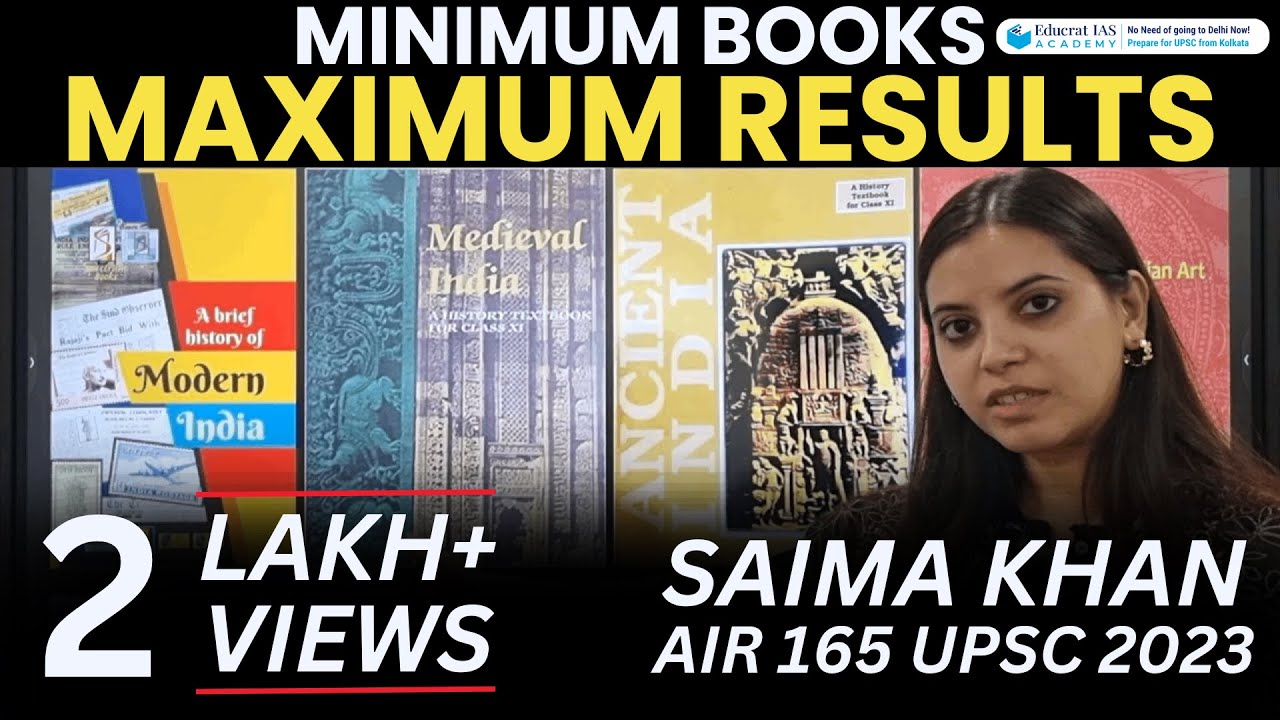One Thing Most UPSC Aspirants Ignore while preparing
Summary
TLDRIn this video, the speaker shares an inspiring encounter with a civil services aspirant in Tokyo, emphasizing the importance of practical experience in the corporate sector before pursuing government roles. He offers valuable advice on the need for aspirants to understand the broader context of their studies, rather than relying solely on memorization. By grasping the interconnectedness of historical and political events, candidates can enhance their analytical skills and improve their performance in the UPSC exams. The speaker encourages a holistic approach to preparation, fostering a deeper understanding that will serve aspirants well in their future careers.
Takeaways
- 😀 Meeting an aspirant in Tokyo was an inspiring experience, showcasing dedication to civil services even while abroad.
- 😀 The aspirant came from a humble background and had pursued studies at a top Indian engineering college.
- 😀 The speaker advised the aspirant to consider an MBA and a career in the corporate sector before attempting civil services again.
- 😀 Gaining experience in the private sector is valuable for contributing to India's development and government efficiency.
- 😀 Aspirants often lack contextual understanding in their UPSC preparation, which is crucial for grasping concepts fully.
- 😀 Context involves understanding the broader historical, political, and social frameworks surrounding a topic.
- 😀 Merely reading textbooks is insufficient for UPSC preparation; deeper analysis and research are necessary.
- 😀 Important questions to ask when studying include: what, who, when, how, and why, to create a well-rounded understanding.
- 😀 Effective answer writing in the UPSC Mains requires a contextual grasp of topics to tackle nuanced questions.
- 😀 Developing a solid foundation through contextual understanding can significantly enhance an aspirant's preparation journey.
Q & A
What is the main theme of the speaker's story?
-The speaker shares a motivational experience of meeting an aspirant in Tokyo who is pursuing civil services while working abroad. The interaction highlights the importance of having aspirations and the different paths one can take to achieve them.
What advice did the speaker give to the aspirant?
-The speaker advised the aspirant to consider staying in the corporate sector and pursuing an MBA, suggesting that he could later transition into civil services through lateral entry or as a consultant, leveraging his technical expertise.
Why does the speaker believe private sector experience is valuable for civil service aspirants?
-The speaker argues that private sector experience is crucial for India's development, as it brings in investment, expertise, and technology, which can significantly aid the government's efficiency and effectiveness.
What does the speaker identify as a common issue among UPSC aspirants?
-The speaker notes that many aspirants lack contextual understanding in their studies, focusing solely on memorizing information without grasping the broader implications and connections of the subjects.
How does the speaker suggest aspirants should approach their studies?
-The speaker recommends that aspirants develop a way of thinking that emphasizes understanding the context of what they study, encouraging them to relate historical events and concepts to their broader significance.
Can you give an example of how context can improve understanding of a historical event?
-The speaker mentions studying World War II, emphasizing that understanding the concurrent global events, such as freedom struggles in various countries and the rise of the U.S. as a power, provides a richer context for analyzing the war's impact.
What method does the speaker suggest for building context around study topics?
-The speaker advises conducting basic research, asking fundamental questions like who, what, when, how, and why, and reading relevant news articles to deepen understanding and create a well-rounded perspective on the topic.
What does the speaker consider essential for writing successful answers in the UPSC exams?
-The speaker believes that writing well is the most crucial skill for the UPSC Mains exam, which requires a deep understanding of subjects and the ability to articulate thoughts clearly in context.
What specific constitutional amendments does the speaker mention as important for UPSC preparation?
-The speaker refers to the 73rd and 74th Constitutional Amendments, which focus on local governance and empowerment of municipal and rural bodies, highlighting their frequent appearance in UPSC exams.
What overall message does the speaker hope to convey to aspirants?
-The speaker aims to encourage aspirants to develop a deeper understanding of their subjects by focusing on context, which will not only enhance their retention of information but also improve their ability to answer complex exam questions effectively.
Outlines

此内容仅限付费用户访问。 请升级后访问。
立即升级Mindmap

此内容仅限付费用户访问。 请升级后访问。
立即升级Keywords

此内容仅限付费用户访问。 请升级后访问。
立即升级Highlights

此内容仅限付费用户访问。 请升级后访问。
立即升级Transcripts

此内容仅限付费用户访问。 请升级后访问。
立即升级浏览更多相关视频

CGL Topper got his dream post of CBI Inspector after studying for just 2-3 months

Dr. Prashanth AIR 78 On Clearing UPSC CSE 2023 In His First Attempt After MBBS

Social Impact Career Paths | Dalberg, World Bank, Non-Profit Organization jobs

How to BECOME a HIGH INCOME Corporate Lawyer in 2024 | CLAT 2025

MUST READ BOOKLIST & RESOURCES for UPSC by AIR 165 Saima Khan, Topper Strategy | Educrat IAS Kolkata

Why IT Management and MIS Are the Smartest Majors in 2024
5.0 / 5 (0 votes)
